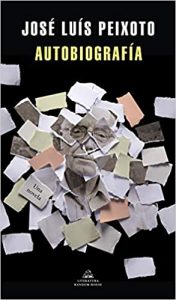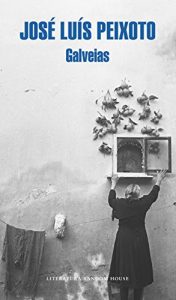The evident show of respect and admiration of Jose Luis Peixoto for his predecessor in the illustrious merit of a referent writer in Portugal, Jose Saramago it has been evidenced in more than one of his works.
But beyond the formal, there is also a thematic harmony, a common background shared from the imaginary of that wonderfully melancholic Portugal that can only lead to lyrical, exquisite and detailed prose.
Besides all this, both Peixoto and Saramago did or do of their literary trade diversity between genres. Because in both we find poetry, theater and of course novels. Reincarnation being impossible due to its coincidence in time and place, if at least a transfer of powers emerges, a creative inheritance that takes on new vigor in a Peixoto capable of the most revealing realism.
But also a Peixoto interested in immediately immersing himself in the mists of that slight transforming fantasy. Allegorical worlds within the mundane that transport us to the encounter with the dreamlike, with a reconstruction of the world to discover, such as awakening to new ways of seeing what surrounds us.
Top 3 recommended novels by José Luis Peixoto
Autobiography
The game between reality and fiction, already marked from the title of the work itself, serves to mark that diffuse terrain of creation. A terrain with access through a strange threshold that the writer crosses during the most inspired process. Just in the moments in which the characters move with their unsuspected autonomy, participating as if nothing of their changing scenarios not subjected to any vector of time and space.
Peixoto lets us pass through its threshold to take us from one place to another. From the imagined Lisbon to the most certain. Saramago is also there, with his advice for a writer as budding as he is in crisis. Everything that happens moves with that magic of being able to live where great writers dream and plan.
In Lisbon at the end of the XNUMXs, the path of a young writer in the midst of a creative crisis - perhaps Peixoto himself when he was starting out - intersects with that of a great writer: José Saramago. From that relationship this story is born, in which the borders between the fictional and the purely biographical are blurred.
The courage to propose the Nobel Prize as the protagonist of a novel entitled Autobiography It already warns us that we are facing a surprising narrative proposal that can only lead the reader to an unexpected end.
José Luís Peixoto, whom José Saramago described as "one of the most surprising revelations in Portuguese literature", explores literary creation and the translucent boundaries between life and literature in this unique set of mirrors. And at the same time, he delves into his obsessions, as is usual for him, with a prose full of detail and lyricism, in this impressive work that will undoubtedly mark the future of Portuguese letters.
Galves
Perhaps the fanciful point of the plot serves to compensate, in a strange symphony, the harshness of a realism drawn with the greatest degree of depth. In one way or another, the meticulousness of the language, the precision of each term makes the resulting preciousness a work in which all the characters participate in immortality.
Because each movement, each scene, each conversation always points to transcendence, to the things that happen for a reason that good literature ends up pointing out and clarifying. Life almost never has meaning, the lives that go through this work, yes.
One night in January, a series of explosions caused a terrible noise in the properties of Dr. Matta Figueiras. Stunned neighbors soon discover the impact of some kind of meteorite. Immediately afterwards, an intense smell of sulfur permeates everything and a persistent torrential rain seems to have no end. Anyone would say that the Universe is determined to challenge the sanity of the inhabitants of this town called Galveias.
This is the gateway to the life of this Alentejo community: the Cordato brothers, who have not spoken for fifty years, or the Brazilian Isabella, who in addition to the bakery runs the brothel, or the postman Joaquim Janeiro, who knows all the secrets and that hides his, or Miau, the village fool, or the Cabeça family, but also the dogs, who with their barking draw their peculiar map of the streets. All of them make up the Galveias universe, a meticulous portrait of the Portuguese reality that brings us closer to its deepest identity.
Beautifully written and with a brilliant formal sophistication, the sensitivity and at the same time the roughness that Peixoto gives us make us Galves in one of the great novels about the rural world and they confirm this author as one of the most outstanding Portuguese writers of his generation, as the Nobel Prize winner José Saramago has already pointed out.
You died me
There always seem to be things left to say with fathers, who are usually more secretive than mothers. Perhaps that is why the fruitless attempts to regain communication when they are no longer there seem so melancholic. The nostalgic beauty of what was left unsaid can make us feel breathless.
A book like this is a hasty gulp of air, evoked sadness in search of happiness that was without explicit evidence. You never go back to the same places where we were happy, but we always strive to try, also Peixoto apparently ...
«Today I have returned to this now cruel land. Our land, father. And all as if it continues. Before me, the streets swept away, the sun blackened with light cleaning the houses, whitewashing the whitewash; and the sad time, the stopped time, the sad time and much sadder than when your eyes, clear of mist and fresh distant swell, devoured this now cruel light, when your eyes spoke loudly and the world did not want to be more than exist. And yet all as if it continues.
The river silence, the cruel life for being life. Like in the hospital. I said I will never forget you, and today I remember. " An extraordinary book by one of today's most outstanding writers.



